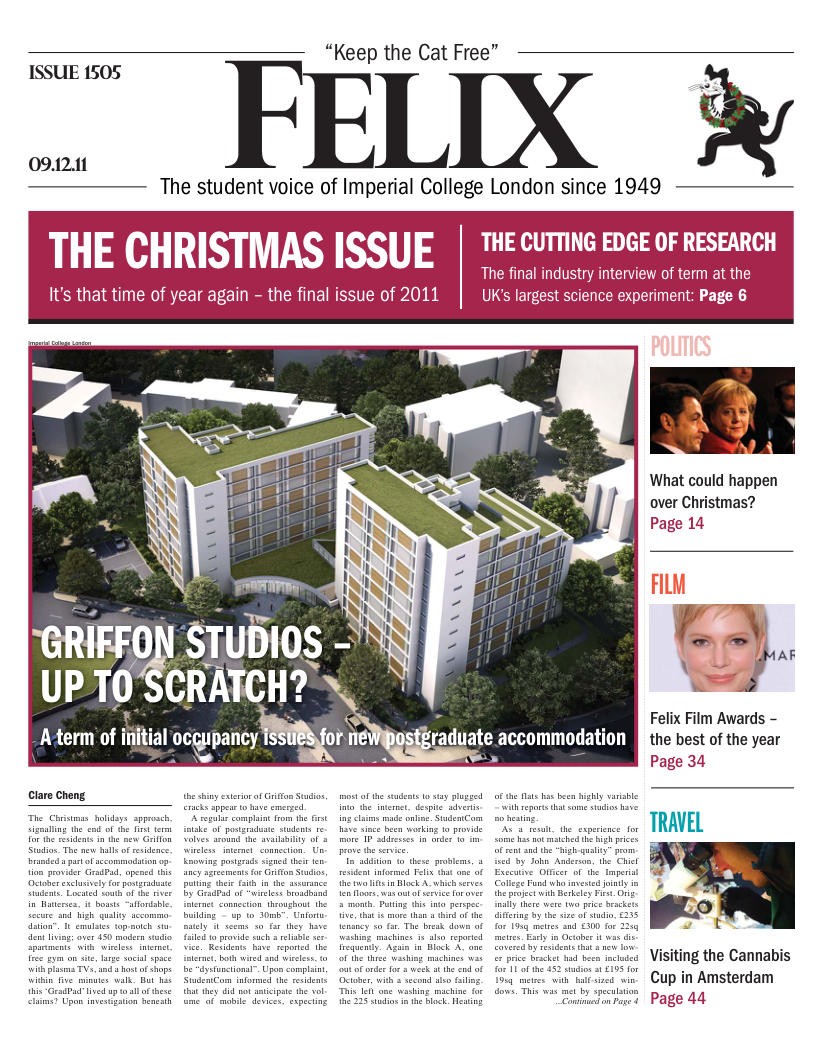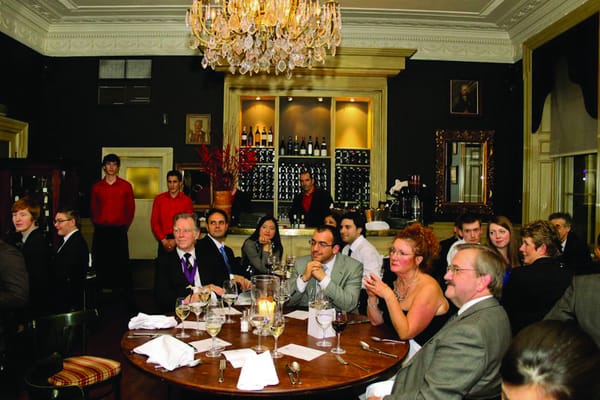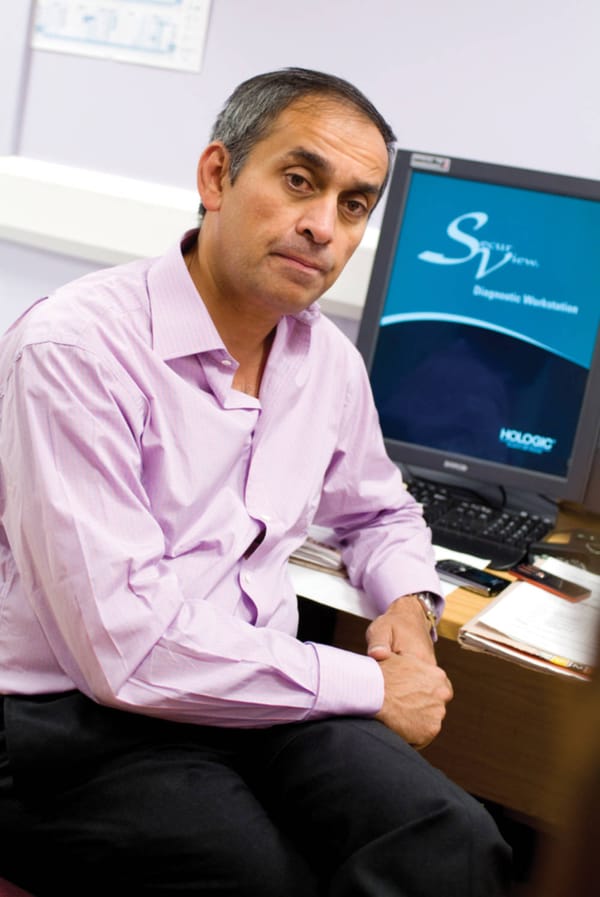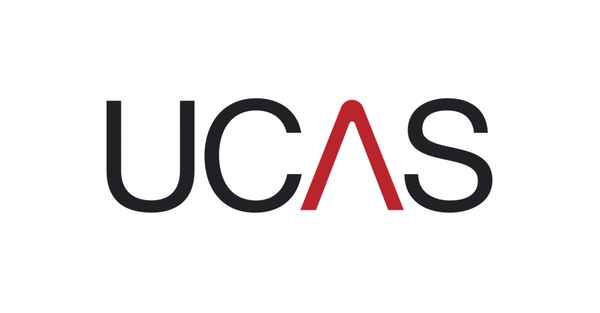Interview: Trevor Rayment
Alice Yang talks to the Director of Physical Sciences at Diamond Light Source
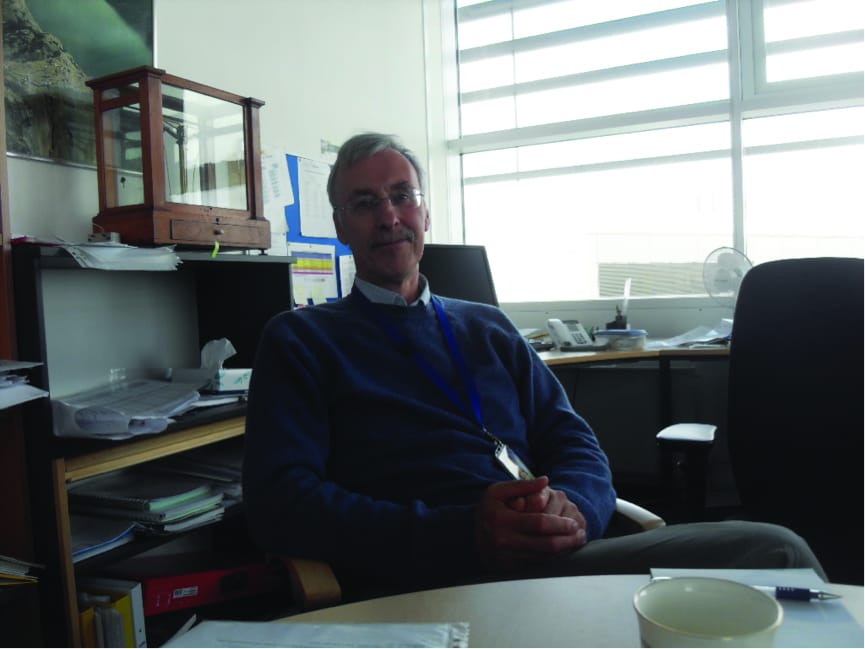
Diamond Light Source, the UK’s national synchrotron facility, sits in the form of a gigantic steel ring amongst stretches of the green countryside surrounding the Harwell Science and Innovation Campus in Oxfordshire. Less than a decade old, this facility is at the cutting edge of research and luckily for me, having interned here for eight weeks, Professor Trevor Rayment, Director of Physical Sciences at Diamond, has managed to find a few minutes in his busy schedule for this interview.
Diamond Light Source is the UK’s largest science experiment, and is a third generation synchrotron that accelerates electrons to almost the speed of light in order to produce synchrotron light. This light, ranging from IR to X-Ray in wavelength, is then split off to beamlines, of which there are currently 32 under operation around the 561m ring – all to help deepen our knowledge of science, from chemistry and materials, to engineering and earth sciences.
After a brief introduction, I sheepishly admit to Professor Rayment that I don’t know much about his past other than a brief summary of his education history. “Good, that sounds about right” he replies, “in these days of the internet, I prefer people to ask me in person.”
In a place of such responsibility, overlooking the entire operation of the physical sciences sector of the UK’s biggest research facility, Professor Rayment admits that it wasn’t a path he just fell in to. “From the age of 12, I’ve dreamt of being a scientist; it’s what I wanted to do. One of my earliest memories is going into a public library and picking out a book on nature of some sort.”
Having completed his degree in Chemistry at Durham University, Professor Rayment decided to move south to Oxford University to study for a DPhil in Theoretical Chemistry. Despite the tragic death of his supervisor part way through, he persevered and completed his DPhil, whilst in fact discovering that he was a much better practical Chemist than a theoretical one. As a result, he moved to Cambridge University where he did a Post Doc in practical chemistry that lead onto a Research Fellowship there.
“Most of my career I’ve been an academic Chemist working at research facilities. After 25 years in Cambridge, things were going very well, but I really feared getting into a rut.
One of the things you’ll find as you grow older is that the opportunities for change will get less and different, and if you simply want a change for the sake of a change, that’s actually not so easy.”
To be a successful academic you need a whole variety of skills
For Professor Rayment, however, change did come several times. After holding the position as Chair at Birmingham University for three years, the position as Science Director came up at Diamond in 2008, for which he was asked to apply, and he has held the position ever since.
When he arrived at Diamond, Phase 1 of its construction had already been completed with 7 beamlines already under full operation, and Phase 2, for the further construction of 15 beamlines, was underway.
“My job was to bring the new beamlines from construction to operation, and then in operation, to make them into mature beamlines with a strong competitive international science programme carried out on them.
“I am here to share the leadership of the science division at Diamond and to make it into a world-class research institute. A research institute that is focussed on delivering science to the communities of academia and industry.
“Day by day, it’s full of all different sorts of meetings, mostly management. I spend around a day a week doing my own science – well that’s the dream anyway, but the rest of the time I do what managers do, which is to listen to and talk to people. I need to understand the organisation well enough to be able to make the short-term decisions in such a way as to maximise the long-term benefits.”
Picking up on the dream of spending time working on his own experiments, I ask whether the practical chemist in him misses the hands-on science.
“I would like to do more of my own science of course, but that’s the same with every academic you ever see.
“However, one of the privileges of synchrotron science is that experiments come around on a periodic basis that you really can get involved with. When we’re doing experiments on the beamline, I help on a practical basis.”
Professor Rayment admits that his knowledge and experience has come with “an unimaginable number of mistakes”, and it is the lessons he has learnt from these that allow him to recognise the mistakes of others and solve them, saving crucial time on experiments that on average last only 48 hours.
Despite its undeniable presence, both on the physical landscape and on the horizons of ground-breaking science research, Diamond Light Source is not a name that many are familiar with. Professor Rayment feels that this may partly be due to many journalists avoiding scientific writing as a result of their lack of scientific background, as well as scientists themselves not being able to explain their own experiments.
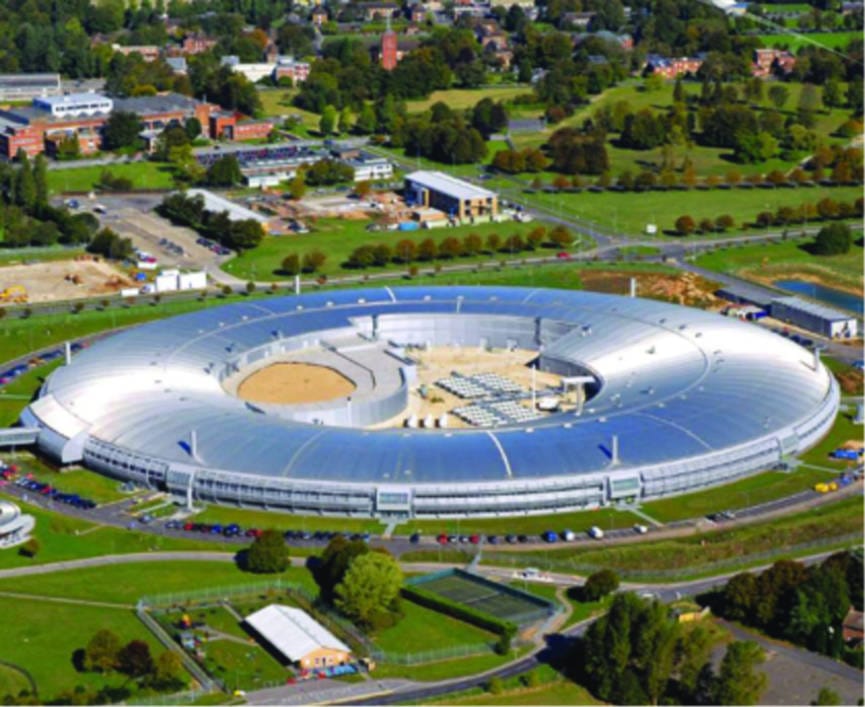
He goes on to explain that with only 400 members of staff and a comparatively modest budget, Diamond believes that is, in fact, “punching above its own weight” in terms of getting the word out and engaging with the scientific and non-scientific communities.
“There is a great deal of science carried out in the UK and we underpin a fair proportion of it. In many cases, the work done at Diamond was absolutely vital, but it’s underpinning and so doesn’t make headlines.”
I question Professor Rayment further on the topic of Diamond’s funding, and if the government’s recent budget cuts have affected the facility.
“Diamond is 86% funded by the UK Research Council and 14% by the Wellcome Trust. When there have been cuts in funding, Diamond has felt it, but we do the best we can to make sure the users don’t feel it. This is a user synchrotron, and the users are kept first by making sure the people who work here are scientifically great. All of our principle scientists are researchers in their own right.” Moving on, I question further into Diamond’s employment schemes and how current science graduates can get involved.
“For people wanting a career here, if you are one of the principle or beamline scientists, we want people to have an independent academic research profile.
“In the science division, there are also positions for Postdocs. We support research students, offer internships and every beamline has two students that we co-fund with a university. We also have an engineering division.”
Curious as to what the Professor would look for in terms of skills when employing, I ask more about his opinions on science careers.
“My personal experience of recruiting Postdocs and students is that you look for ability in their grades; you look for their vision, passion and enthusiasm.
“To be a successful academic you need a whole variety of skills. I think to be a good researcher; you actually need to have a passion for the subject, and you have to learn to fail, and learn from those failures.
“One of the things I’ve learnt is that you always keep on learning. Over time, I’ve also learnt that sharing what you learn and what you know with others is exceptionally valuable. One of the characteristics of an academic life is that it can be quite solitary; it’s a feature of academics to want personal recognition. That can be positive, but it can also be destructive.
“Doing research is hard work, and part of your responsibility is to communicate it to other people. If you’re not excited about your research, then you’ll never excite anyone else about it.”

